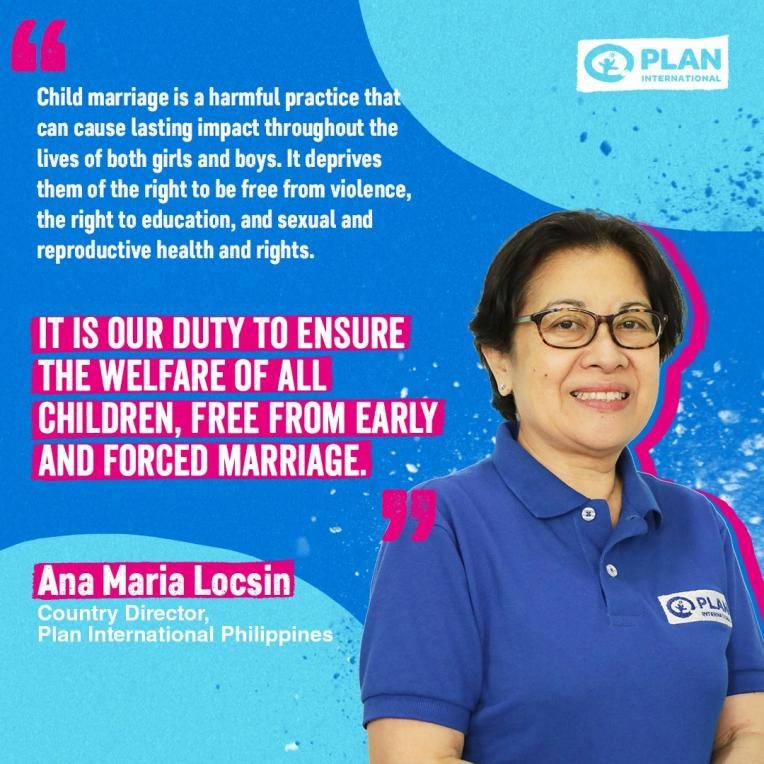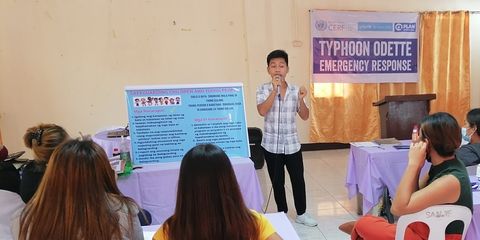7 JANUARY 2022
Plan International celebrates the approval of Republic Act 11596, the Philippine Law to Prohibit Child Marriage, and further calls for support and a multi-sectoral and coordinated approach for the implementation of the law.

The Philippines has approved Republic Act No. 11596 or the “Prohibition of Child Marriage Law.” RA 11596 defines child marriage as “any marriage entered into where one or both parties are children (persons below 18 years old) and solemnised in civil or church proceedings, or any recognised traditional, cultural or customary manner.”
The Prohibition of Child Marriage Law seeks to protect children by prohibiting the practice of child marriage and declaring child marriage as illegal and imposing penalties for violations. The measure mandates the government to implement enabling policies and programmes towards an environment where child marriage shall not thrive. This includes girls’ empowerment programmes, increased access to quality education, economic support for children and their families, and the application of interventions to empower parents and community leaders against the practice.
Child marriage is still prevalent in the country. Globally, the Philippines ranks 12th in the absolute number of child marriages, and 1 in 6 Filipino girls get married before they turn 18. The passing of this law is a step towards eradicating child marriage in the Philippines.
More work to end child marriage
Programmes and research conducted by Plan International show that there are many complex and interrelated drivers and consequences of child marriage. Many of which are rooted in gender inequalities and harmful gender norms that devalue women and girls, normalise gender-based violence and perpetuate patriarchal ideas on control of women and girls’ sexuality.
this landmark legislation is the first step in reclaiming the space with women and children who have been forced into marriage.
Along with this historical law, Plan International Philippines strongly recommends programmes with more focus on gender issues and children’s welfare and rights coupled with campaigns that will help communities adapt to the new law, and strong collaboration across different sectors including engagement with families, communities, traditional, religious and cultural leaders.
“We are eager to continue working on a multi-sectoral approach with our partners to fully implement the law and ensure a comprehensive and holistic response towards eradicating child marriage,” said Ana Maria Locsin, Country Director of Plan International Philippines.
Plan International continually works closely with partners and communities in Occidental Mindoro and BARMM, on programmes to advance children’s rights and equality for girls both in development and humanitarian settings. The organisation will continue working in these areas to specifically address the needs of the Muslim community and the indigenous peoples’ communities, and ensure proper support in the transition towards implementing the law.
“The approval of this landmark legislation is the first step in reclaiming the space with women and children who have been forced into marriage. Let us solidify our commitment through its implementation to ensure that every child is protected” said Locsin.
Media Contact:
Kassandra Barnes
Communications Specialist, Plan International Philippines
Email: kass.barnes@plan-international.org
Categories: Protection from violence


